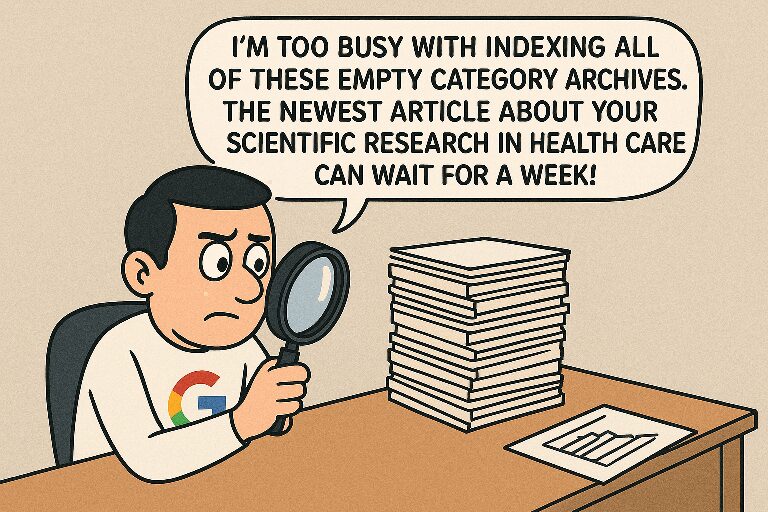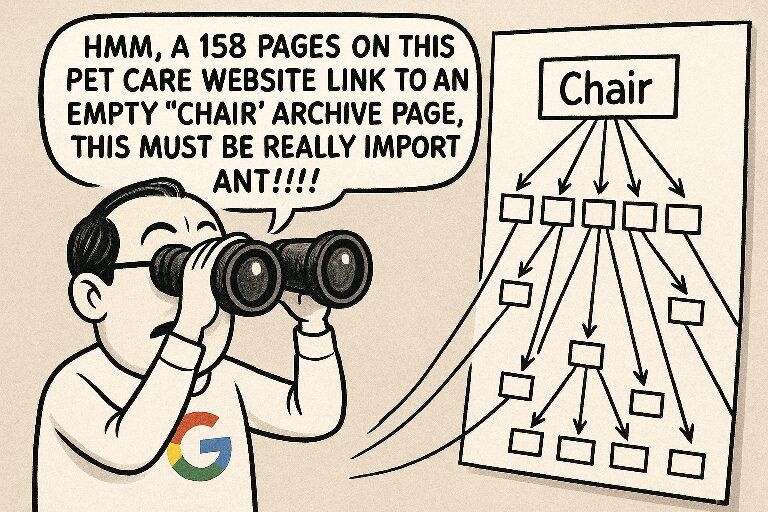When creating websites with WordPress there is often such cases when it is better to completely disable WordPress category and tag pages. While the idea of categorizing WordPress posts is not bad by itself, it may hurt the website SEO scores if its being done incorrectly.
At the end – it’s up to a web developer or project manager to make the correct decision. Also by taking in account that the web developer may not be the same person who will manage the website. As WordPress comes with a lot of default functionality enabled, for the sake of reducing human factor related mistakes, it’s better to disable and remove everything from the admin panel that is not intended for use on the particular website.
Making the correct decision on how to handle categories and tags for posts
There are three ways how the WordPress categories and tags for posts can be handled:
- Leave the functionality as is – the content manager of the website will be fully able to add/edit and assign the categories and tags for posts. Each category or tag will have its own publicly available archive page that can appear in a lot of places on the website.
- Leave the categorization options, but disable public archive pages – this means that the features of creating and assigning categories or tags to posts are still available in the admin, however they do not produce any publicly visible archive pages. This is the most suitable choice if categorization must be done only internally or for custom post filtering purposes (e.g. an AJAX based filter on the website – all posts shown on one page and a visitor can filter out the posts from specific category while staying at the same page)
- Completely disable the functionality – remove the features of adding categories or tags to the posts plus remove the archive pages from public view (including references in sitemaps, menus, feeds, REST API)
As the WordPress post tag pages are not that popular (except for large news websites), a common way is to disable the post tags completely and leave the post categories with or without the publicly available archive pages.
How to disable WordPress post tags or categories
A crucial step is always to delete the unneeded WordPress category and tag pages first before modifying the functionality. This is necessary to free-up the database from content which may not be available for editing later.
Since the WordPress Post tags and categories comes as a default functionality of WordPress, the first and most safest approach would be to just unregister them from the “Posts” post type.
This will remove the “Categories” and “Tags” sub-menu items from the “Posts” admin section in WordPress, disable all of the meta boxes and features which allow to assign categories and tags for the posts.
Unregistering taxonomies from a post type will not help with removing the public archive pages or removing the term assignments to posts. The category or tag pages will be still visible publicly accessible via the website along with the references in the sitemap, feeds or REST API. Also these archive pages will still return the lists of posts to which the terms have been assigned to.
<?php
add_action( 'init', function() {
unregister_taxonomy_for_object_type( 'post_tag', 'post' );
unregister_taxonomy_for_object_type( 'category', 'post' );
}, 20 );
?>In order to remove the categories or post tags from the public view, please use the next code snippet.
How to hide the categories or post tags from public view
There could be cases when you want to keep the functionality of tags or categories, but do not want them to generate the archive pages.
add_filter( 'register_taxonomy_args', function($args, $taxonomy_name) {
if ( 'post_tag' === $taxonomy_name ) {
$args['public'] = false;
$args['show_in_rest'] = false;
}
return $args;
}, 10, 2 );Other issues related to modifying the category and tag page visibility
Here you can read about some common problems which can be faced when doing modifications on WordPress category and tag page visibility for posts. Please check each of them carefully to ensure that it does not apply to your website
Sitemaps not getting updated
There could be a case when a sitemap cache must be cleared, however some plugins like Rank Math are not the best in handling that. If you use Rank Math SEO and are facing the issues with XML sitemaps showing up incorrectly, the first thing you could try is to disable the sitemap cache by using this filter:
<?php
add_filter( 'rank_math/sitemap/enable_caching', '__return_false');
?>Common scenarios how category and tag pages are used incorrectly
Here you can read about the most common situations how WordPress category and tag archives are used incorrectly.
Demo content left on a website from a pre-built WordPress theme
Less experienced WordPress users who may not even have the advanced skills in coding, often install a pre-built theme, change the demo content on the website to meet their needs and forget about other pages which are left behind, including the category and tag pages. This often results in irrelevant pages on your website being indexed and publicly advertised by the internet search engines.

Aggressive use of the post tags in WordPress – keywording
Another wrong approach which can be seen on a lot of websites is marking the WordPress posts with a lot of tags. The problem is that many content managers think of the tags like “keywords” to add for the post. They assume that adding more tags for a post will increase its search engine rankings or help the reader to find the relevant content more quickly, but that’s very untrue.
The core problem is that almost no one goes further than just registering a new tag. The archive pages for these tags contain nothing but a “tag name” along with a specific list of posts which is often identical or almost the same as in the other such pages.
This results in search engines flagging such pages as thin or duplicate content, therefore negatively impacting the website SEO scores.
In some cases when there is only one or two posts tagged with a specific tag, the archive page for that tag will contain almost no information – in such cases search engines will most probably treat this tag page as “soft 404”.
Publishing empty archive pages for “later use”
This actually does apply not only to the archive pages, but to the website pages in general. Some people like to create empty pages on their websites with a text like “The content for this page is being prepared. Come back later“, but they do not realize that such pages are just wasting the precious time of the site visitor and are considered a very bad practice. Moreover there are cases when such pages exist on a website for months or even years.
These are so called “soft 404” pages and their existence can negatively harm the overall reputation of the website.
How an incorrect use of WordPress categories and tags negatively affect the SEO
- Pages with no value (thin or duplicate content) – Search engines can flag pages that are empty (resulting in a soft 404) or contain duplicate content. An excessive number of these low-quality pages, often generated by unused or poorly managed tags and categories, can negatively affect your website’s search rankings and overall visibility.
- Waste of the search engine crawl budget – Search engines allocate a limited amount of resources, or “crawl budget,” to indexing any given website. If this budget is consumed by crawling a multitude of low-value pages, the discovery and indexing of your important, high-quality content can be significantly delayed. This means your new content may take much longer to appear in search results.

- Improper internal linking – Internal links are a critical signal search engines use to identify a website’s most important pages. When numerous links point to thin or empty archive pages, it dilutes the authority passed to your primary content. This can confuse search engines about which pages are most valuable, potentially reducing your site’s visibility in search results.
